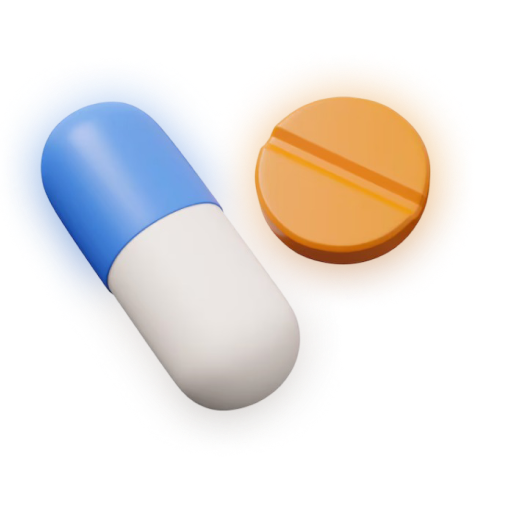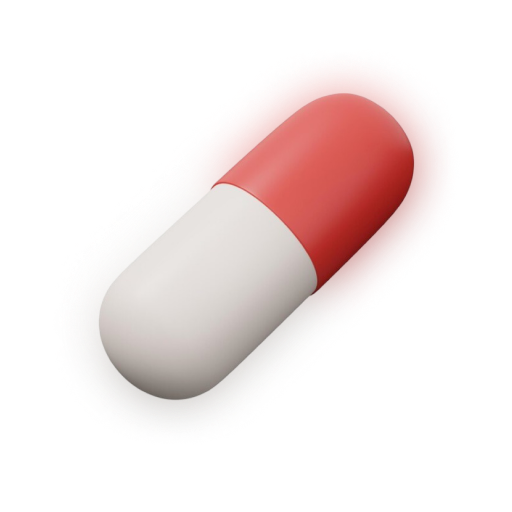Escitalopram 10 mg Tbl Flm 28 Stk
Mood and anxiety stabilizer


Description
Generic Name: Escitalopram oxalate
Brand Name: Cipralex, Lexapro, Seroplex, various generics
Drug Class: Selective Serotonin Reuptake Inhibitor (SSRI)
This is a prescription medicine, which requires a valid prescription!
Indications
- Major Depressive Disorder (MDD)
- Generalized Anxiety Disorder (GAD)
- Social Anxiety Disorder (SAD)
- Panic Disorder (with or without agoraphobia)
- Obsessive-Compulsive Disorder (OCD) – off-label

Escitalopram selectively inhibits the reuptake of serotonin (5-HT) in the synaptic cleft, which:
- Increases extracellular serotonin levels
- Enhances serotonergic neurotransmission in the brain
- Alleviates symptoms of depression and anxiety over time
- Has minimal effects on norepinephrine and dopamine reuptake
- Starting dose: 10 mg once daily
- Maintenance dose: 10–20 mg once daily
- Take with or without food
- Typically takes 1–4 weeks for full therapeutic effects
- Use lower starting dose in elderly or patients with hepatic impairment
- Common:
- Nausea, dry mouth
- Insomnia or somnolence
- Headache
- Increased sweating
- Fatigue
- Less Common:
- Sexual dysfunction (e.g., decreased libido, delayed ejaculation)
- Weight changes
- GI disturbances (diarrhea, constipation)
- Anxiety or agitation at treatment onset
- Serious (rare):
- Serotonin syndrome (especially when combined with other serotonergic drugs)
- QT interval prolongation (dose-dependent)
- Hyponatremia (especially in elderly)
- Suicidal thoughts (particularly in adolescents and young adults)
- Concurrent use with MAO inhibitors (within 14 days)
- Known hypersensitivity to escitalopram or citalopram
- Congenital long QT syndrome (caution or avoid)
- Severe hepatic impairment (requires dose adjustment)
Information
Warnings and Precautions:
- Monitor closely at start of therapy for suicidality, especially in younger patients
- Use with caution in patients with history of mania or bipolar disorder
- Gradual tapering recommended when discontinuing to avoid withdrawal symptoms
- Risk of bleeding increases with NSAIDs, aspirin, or anticoagulants
- QT prolongation risk increases with high doses or other QT-prolonging medications
Drug Interactions:
- MAO inhibitors: Risk of serotonin syndrome
- NSAIDs/anticoagulants: Increased bleeding risk
- Triptans, tramadol, other SSRIs/SNRIs: Serotonin syndrome risk
- CYP2C19 inhibitors (e.g., omeprazole): May increase escitalopram levels
- Alcohol: May impair judgment and increase sedation
Request Now
Direct Enquiries
For any inquiries, please feel free to contact us directly via email at the link below.
pharmacy@doctorworld.eu
PLEASE AVOID SELF-DIAGNOSIS AND SELF-MEDICATION!
Our website content is posted for informational purposes only. It is not intended to be used for primary diagnoses-making and should not replace a consultation with a professional health care provider. If you have any health issues or complaints, please consult your primary physician.
Health care data provided for informational purposes is not an alternative to an in-person physician consultation.